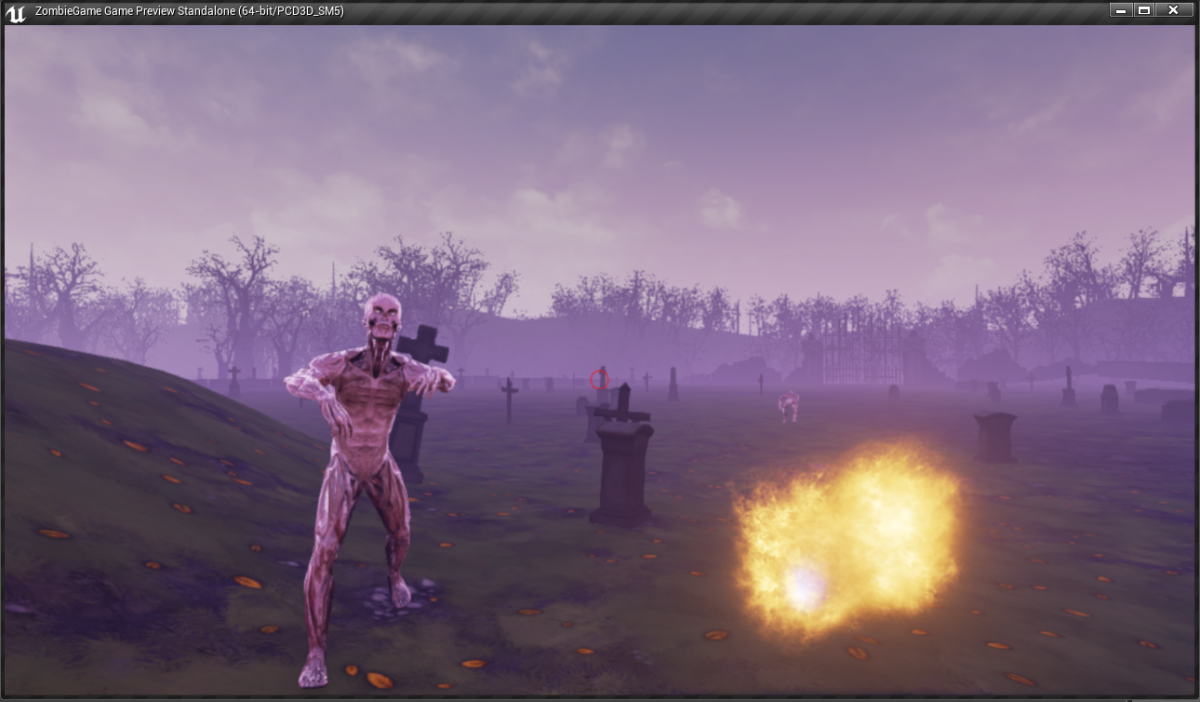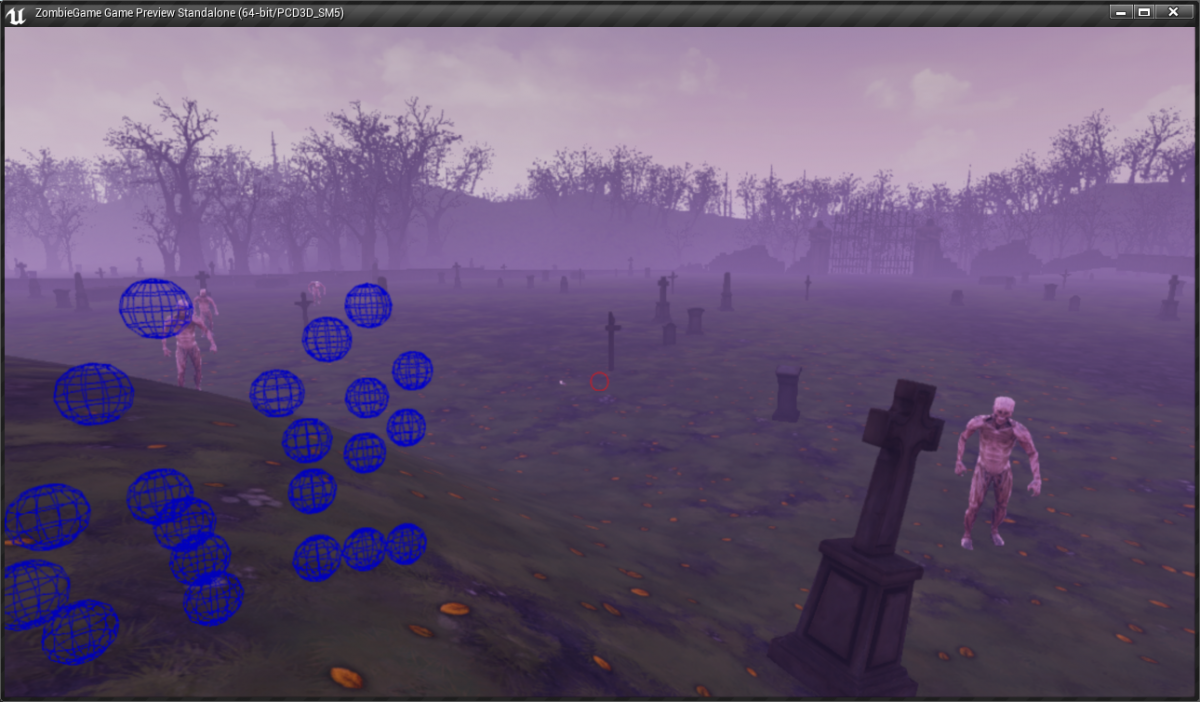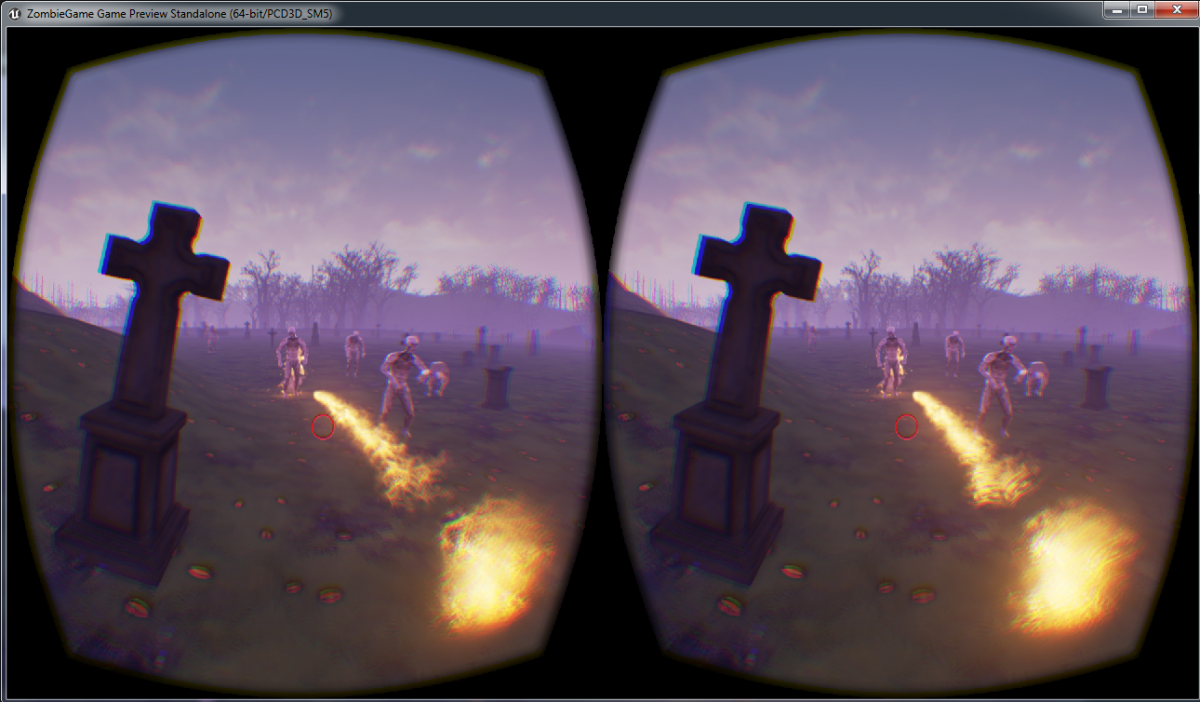All my attempts at pursuing investment partners so far have failed. That's to be expected though. Usually, if you want to get funded, you're going to need at least six months of effort to get it (assuming you're worth funding, of course). I'm closing in on the end of the first month of effort in pursuing it, but I have enough fuel to last 12 months. Let's assume it fails completely and no investor wants to fund me. What's the back up plan?
Well, we've still got 12 months of time to bust out a product. That's a lot to work with. I am going to be renting out my apartment with AirBnB and renting out my car to get some extra fuel, but it's certainly not going to be the sustainable solution to be completely funded.
I'm also working to release our zombie game (for free?). There's a few objectives here:
1.
Credibility: Establish credibility by releasing something into the wild. This makes the investment pitch a lot more compelling when we've got numbers.
2.
Experience: Get experience in releasing. This is a pretty simple game, so what hoops do I have to jump through to get it out there and to get people to play it?
3.
VR Research: Figure out what the pain points are for people who are using a virtual reality headset and/or the leap motion device. Few people have built a polished VR game before, so... it's all new territory to discover (more on this later).
4.
Promotion: Use our game to cross promote our website and start building a fan base. The zombie game is a bit of a teaser for the main magic game we're building.
5.
Customer Feedback: Test out game mechanics on players. Are they fun? Do they work? What do the customers want?
6.
Donations: Solicit donations from players in order to fund the magic game we're building. $5/month would go a long ways! The wild dream is to get enough donations to cover the monthly costs of development.
7.
Press and Marketing: Figure out what it takes to do press releases and how to talk to journalists. What goes into a press kit?
8.
Morale: If you release a game and it does pretty well in the wild, it's a huge boost to morale and inspires us to work harder. Wouldn't it just be awesome to go to a VR event and see strangers who downloaded our game and are demonstrating it to other people?!
9.
Business Deal: There's a small chance that I could convince a local arcade business to feature our zombie VR game. They'd have to buy the equipment and promote it, but if we give them the content for free, they could recoup their costs (~$2000) by charging $5/game. VR is new and sexy, so getting people to come in and try it out is a marketing challenge.
10.
Steam Greenlight: I know next to nothing about working with steam at the moment. What hoops do I have to jump through to get my game posted? What price would people reasonably pay to play this game? Do you give it away for free and hope for donations? Or do you charge a small price to get some legit sales?
11.
Branding: I've got a game company name. It's good to get our name out and get some name recognition, as both a company and as developers.
[color=#ff8c00]
Zombie Game:[/color]
We're working on getting the final touches just right and still learning about how to build VR and hand motion games in UE4.
Leap Motion:
From my experience, the Leap Motion device is very finicky and frustrating to use. I think the UE4 plugin is to blame -- performance in Unity games seems to be great, regardless of environmental conditions.
We're exploring the feasibility of the idea of casting spells by using your hands instead of a keyboard and mouse. The problem with the leap motion device is that it only has one camera and a somewhat limited field of view. If your hand is oriented so that your fingers are hidden, it can't pick up finger gestures. Obviously, to do motion capture right, you'll need more than one camera viewer *cough* steam lighthouse *cough*. The other problem is that if you have a spell in your hand and then your hand moves out of the field of view, the hardware can't track your hand movements. In our game, you hold a fireball in your hand and throw it. When you wind back your arm, the leap motion loses track of it (especially if its sitting on your face). The other issue to be concerned about is: What happens if the device loses track of your hand for a few frames? What happens if the hand goes out of the field of view and its holding a fireball? In our game, we just launch the fireball.
The gesture recognition is also pretty finicky. To cast a fireball, you have to make a fist. To release the fireball, you open your fist. Often, its hard to get the device to recognize the gesture. More often than not, you're fighting with the hardware to get it to do what you're trying to do than focusing on playing the game. This isn't good at all. It's frustrating, and I'm abnormally patient.
Conclusion: I think the feasibility of using leap motion is not looking very good. This is supposed to be the fun part of this game and it doesn't work very well. I think the SteamVR might be more promising, or if Oculus releases a gesture recognition system, that too might be better.
Oculus Rift:
So, VR is pretty cool. If you can do it right, it's freakin' awesome. As a VR developer, you're chasing after that elusive sense of "presence". The VR goggles can only do so much to make your eyes think that they're in another world, but its up to you to do the rest to convince people that the world they're seeing is real. That's tough.
Our zombie game looks a bit fake right now. I think the environment and lighting needs some work. Also, you cannot ignore sound effects. Every time the player does something, you should give them some auditory feedback. Did you take a step forward? play a footstep sound. Did you bump into something? play an appropriate bumping sound. One thing you have to keep in mind is that the player is experiencing the world from the first person view as if they were really there. So, my opinion is that some things just can't be done in the conventional sense of an FPS game: No user interface screens! No music from nowhere! No large billboards (watch out for this in your particle systems!)
In our zombie VR game, we also have to build the game with every hardware combination for people who may want to play it differently than designed:
Standard: Mouse, Keyboard, Monitor
Leap Motion: Mouse, Keyboard, Monitor, Leap Motion
VR: Mouse, Keyboard, Oculus Rift
VR + Leap Motion: Mouse, Keyboard, Oculus Rift, Leap Motion
In some cases, I found that I was accidentally disconnecting the USB cable to the leap motion device during game play. I wrote up some logic to detect this and to detect when it gets reconnected.
Release:
I'll post a link to the downloadable version here when we release it in a few weeks.
Screenshots:
(Note: work in progress)
Standard game play:

Typical WASD + mouse look controls. Hold left mouse button to charge up and launch fireball.
Leap Motion game play:

Displaying the wireframe for the left hand in the open position (A wireframe fist doesn't display well for promo content). This will be a textured wizard hand.
VR Game play:

This screenshot doesn't do the experience true justice, but hey, now you see that it works!







6. Donations: Solicit donations from players in order to fund the magic game we're building. $5/month would go a long ways! The wild dream is to get enough donations to cover the monthly costs of development.
Have you considered twitch? Airing game development is quite en vogue lately, and besides "free marketing" it's actually a good place to receive subscriptions (donations in a pretty package).
I'm not exactly sure how outgoing a person you can be based on your previous posts, but it may be worth investigating the returns on this.
7. Press and Marketing: Figure out what it takes to do press releases and how to talk to journalists. What goes into a press kit?
Poke-me when you're about to get started on this. I can probably help you get started on this.
If not: http://www.pixelprospector.com/contents-and-examples-of-press-kits/
Best of luck!